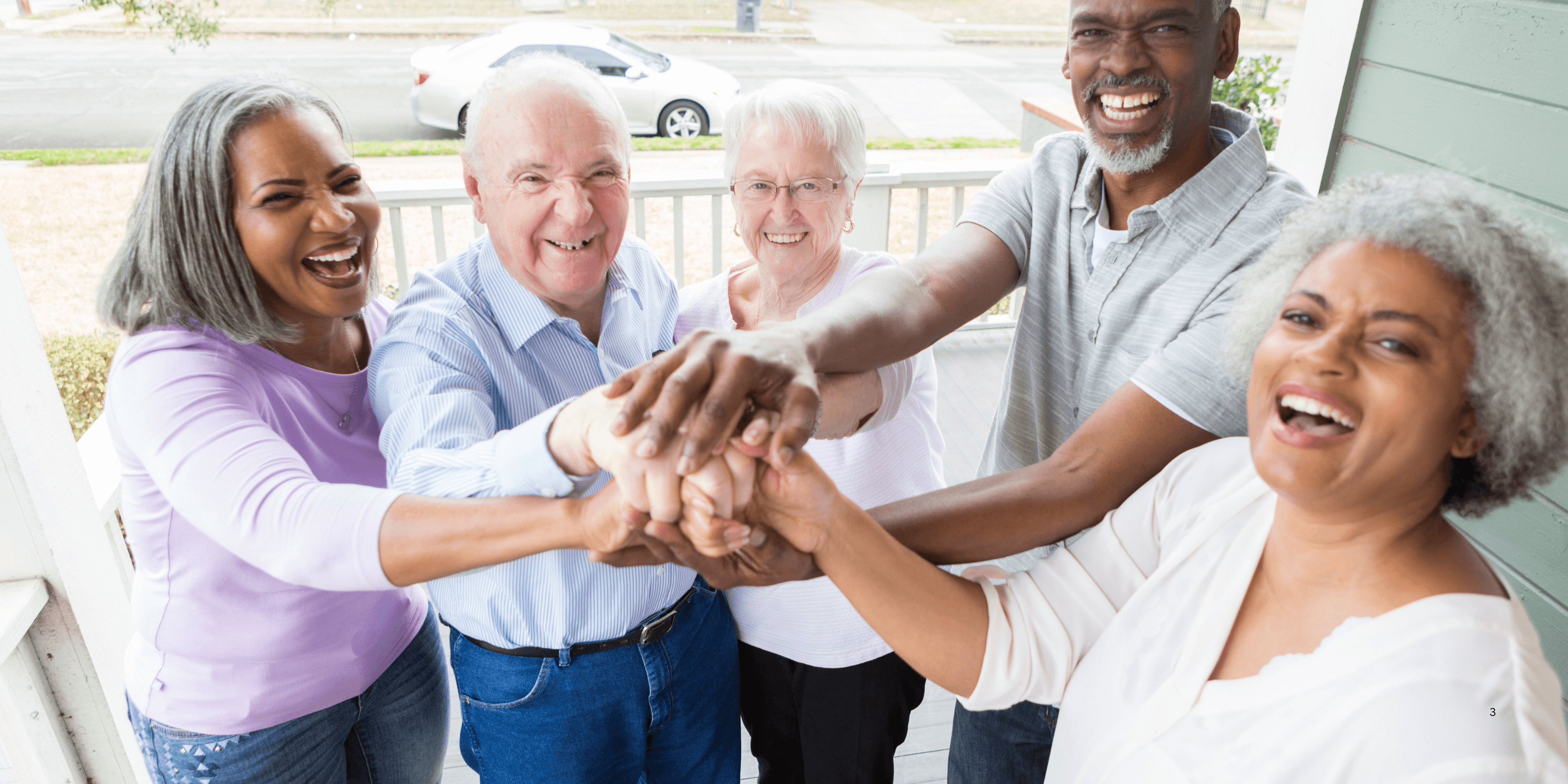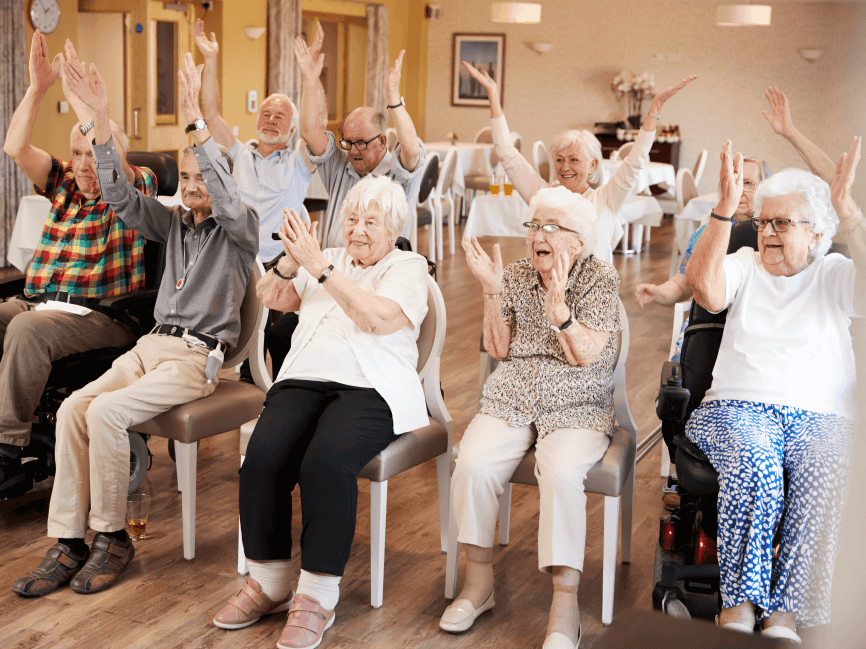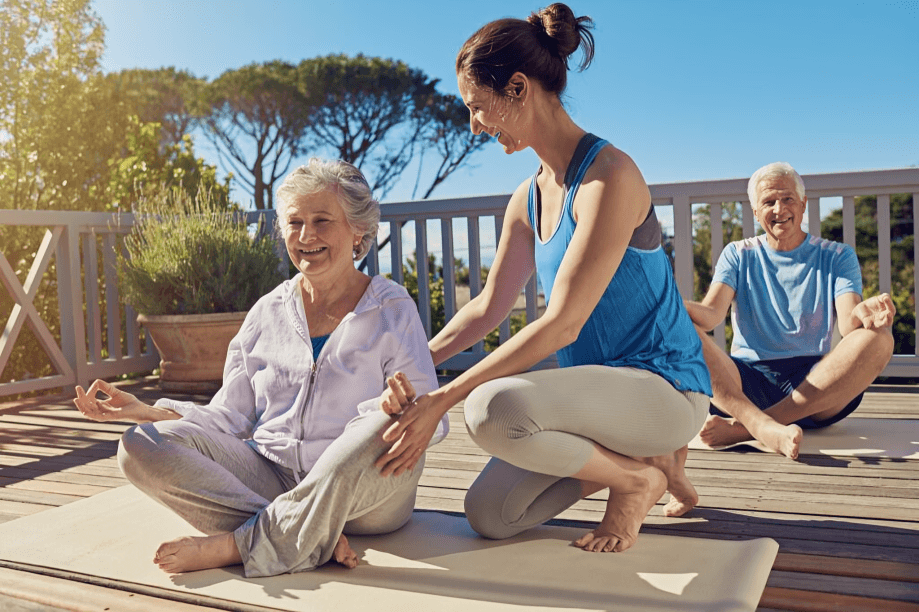
“
Social participation plays a vital role in healthy aging. Why seniors should engage in community activities isn't just a wellness suggestion—it’s a proven path toward improving physical health, mental clarity, emotional resilience, and social belonging. When older adults remain active within their communities, they foster purpose, enhance their quality of life, and reduce loneliness. 1
1
”
Seniors who participate in regular community events, like book clubs or walking groups, report lower levels of depression due to consistent social stimulation and the uplifting sense of being valued by others. 1
Engaging in community activities improves cognitive function in seniors. Studies show that socializing regularly delays memory decline and keeps the brain agile longer than isolation. 2

Physical health gets a natural boost when seniors join dance classes, gardening groups, or walking clubs. These activities promote movement and overall stamina in an enjoyable, pressure-free environment.
Seniors involved in group activities are more likely to maintain healthy routines, such as balanced eating and medication management, thanks to peer accountability and shared discussions around wellness practices. 3
Older adults who volunteer in their communities often experience a sense of renewed purpose. Feeling needed and useful helps combat anxiety and gives life structure, especially after retirement. 4
Seniors who attend local classes or workshops keep their minds active. Lifelong learning, even in simple formats, stimulates curiosity and strengthens cognitive pathways in the brain. 5
Friendships formed through community centers or senior clubs often turn into support systems. These bonds provide companionship that helps prevent loneliness, especially for those who live alone. 6
Participating in social events offers a natural mood boost. Laughter, conversation, and shared hobbies trigger the release of endorphins and serotonin, enhancing overall emotional well-being. 7
Involvement in group activities encourages better sleep patterns in seniors. A more active social calendar leads to increased physical activity and emotional balance, which in turn supports restful sleep. 8

Spiritual community events like group meditation or religious gatherings help seniors feel connected to something greater, which reduces the fear of aging and brings inner peace during life transitions.
Seniors who engage with others regularly are better at recognizing early signs of health issues. Peer conversations often encourage timely doctor visits and increased awareness of age-related symptoms. 9
Organized activities offer a structured daily routine, reducing boredom and confusion that often come with too much unstructured time, especially for retirees or seniors living alone. 10
Creative community groups like art or music classes promote self-expression. These outlets are therapeutic, helping seniors process emotions and discover new talents they may have never explored before. 11
Access to community centers ensures exposure to updated information about nutrition, health tips, and wellness services, empowering seniors to make more informed decisions about their lifestyle. 12
Socially active seniors have higher life satisfaction scores. Interacting with others cultivates gratitude, joy, and a positive outlook—critical components of psychological health in later years. 13

Elderly individuals who participate in local outreach programs often become mentors. Sharing life experience gives them a leadership role and fosters deep emotional rewards through guidance and storytelling.
Group games, like chess or bingo, not only entertain but also challenge memory and attention. These mentally stimulating activities delay cognitive aging and offer fun, healthy competition with friends. 14
Seniors who join support groups feel more emotionally understood. Talking with others facing similar life challenges—grief, chronic illness, or retirement—provides comfort and builds emotional resilience. 15
Participation in public projects, like community gardens or library events, increases visibility and respect for seniors in society, reminding others of their continued relevance and potential for contribution. 16
Physician Dr. Abraham Maslow believed that love and belonging are human necessities. For seniors, community activities provide that vital sense of connection that supports both mental wellness and overall health. 17


